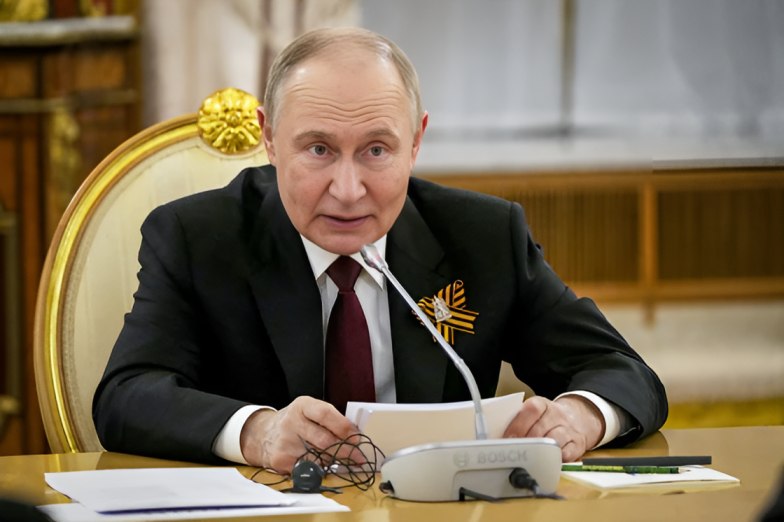President Vladimir V. Putin of Russia announced on Monday that the Kremlin is prepared to extend limitations on nuclear warheads and launchers for one more year, provided that the United States agrees to maintain the same restrictions.
The proposal, made during a televised meeting with top officials in the Kremlin, outlines Moscow’s readiness to uphold the last remaining nuclear arms control framework between the two countries.
Putin’s remarks focused on the importance of avoiding further escalation in nuclear competition. He emphasized that the continuation of existing limits would not only help stabilize relations but also avert unnecessary provocations in the global strategic landscape.
“We want to avoid provoking a further strategic arms race,” the Russian leader said in a statement broadcast nationally. “We believe that this measure will become viable only if the United States acts in a similar way and does not take steps that undermine or violate the existing balance of deterrence potentials.”
The announcement reflects Russia’s awareness of the economic and political consequences of pursuing an unchecked arms race. With significant portions of the state budget already allocated to defense and ongoing military expenditures in Ukraine, the Kremlin is under pressure to manage resources more carefully.
A decision to extend nuclear limits, even temporarily, highlights Putin’s effort to reduce additional financial burdens while maintaining Russia’s deterrence posture.
For Moscow, the proposal also carries diplomatic significance.
The nuclear caps, established under the last remaining bilateral treaty with Washington, symbolize not only a measure of restraint but also a channel of predictability in otherwise strained relations.
By offering to extend these limits for one year, Putin signals that Russia is not seeking immediate escalation but instead desires a temporary pause that might open space for future negotiations.
The United States, meanwhile, has long expressed concern about compliance and the need to modernize arms control frameworks. Yet, Putin’s conditional proposal places the onus on Washington to either reciprocate the extension or risk the collapse of the remaining nuclear balance between the two largest nuclear powers.
The timing of Putin’s statement also points to broader frustrations in U.S.–Russia relations.
President Donald Trump, already struggling with stalled efforts to bring the Ukraine conflict to a close, has grown increasingly dissatisfied with Moscow’s positions on a range of bilateral issues.
The Kremlin’s gesture may therefore be seen as an attempt to reduce tensions while still safeguarding Russia’s strategic interests.
Despite the offer, Putin was clear that the extension hinges on reciprocity. Without parallel action from the United States, Russia would not proceed unilaterally.
This condition reflects Moscow’s longstanding position that arms control must be mutual, verifiable, and grounded in maintaining the balance of deterrence.
The broader context of the announcement illustrates the delicate interplay between military necessity, economic constraints, and political signaling. Russia’s leader sought to portray the offer as both pragmatic and responsible, an effort to prevent destabilization at a time when the international environment is marked by uncertainty and competing priorities.
For now, the Kremlin’s stance leaves open a narrow but critical opportunity for continued cooperation on nuclear arms control. Whether Washington responds favorably remains to be seen, but the decision will likely carry significant implications for global security.

